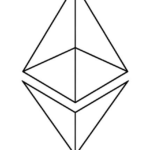Poland’s Crypto Regulation Dilemma: MiCA’s Impact on Local Exchanges
The EU’s Markets in Crypto-Assets Regulation (MiCA) aims to unify crypto rules across all 27 member states. This regulation promises clarity for investors, businesses, and regulators. However, Poland’s strict implementation could harm its domestic crypto industry.
Poland’s version of MiCA includes high licensing costs (€400k–€800k) and a €500k capital requirement. Thes barriers are too high for most local exchanges, possibly wiping out up to 90% of them. Only global giants like Binance and Coinbase can afford these costs.
Meanwhile, smaller EU nations like Estonia, Cyprus, and Lithuania are using MiCA to attract startups with business-friendly rules. Without reform, Poland could lose its early crypto advantages and become a consumer market for foreign platforms.
Regulation is not the enemy. MiCA’s requirements, such as wallet segregation and audits, bring crypto closer to mainstream finance. This builds confidence. However, overly heavy regulation can create barriers for small domestic players.
Poland has a growing crypto user base and entrepreneurial talent. But if its pioneering firms are pushed out, it risks becoming a consumer market for foreign platforms. Fees may rise, choice may shrink, and innovation will migrate elsewhere.
Poland now stands at a crossroads. It can choose to interpret MiCA pragmatically, lowering entry costs and giving its innovators a fair chance to thrive. Or it can cling to overregulation and watch its exchanges disappear. Regulation should empower entrepreneurs, not exile them.
Smaller states are already seizing the moment. Poland cannot afford to stand still. In the new European crypto order, the winners will be those who build and thrive off newfound clarity. if Poland doesn’t seize this chance, it will lose a generation of talent to Europe’s first adopters.








